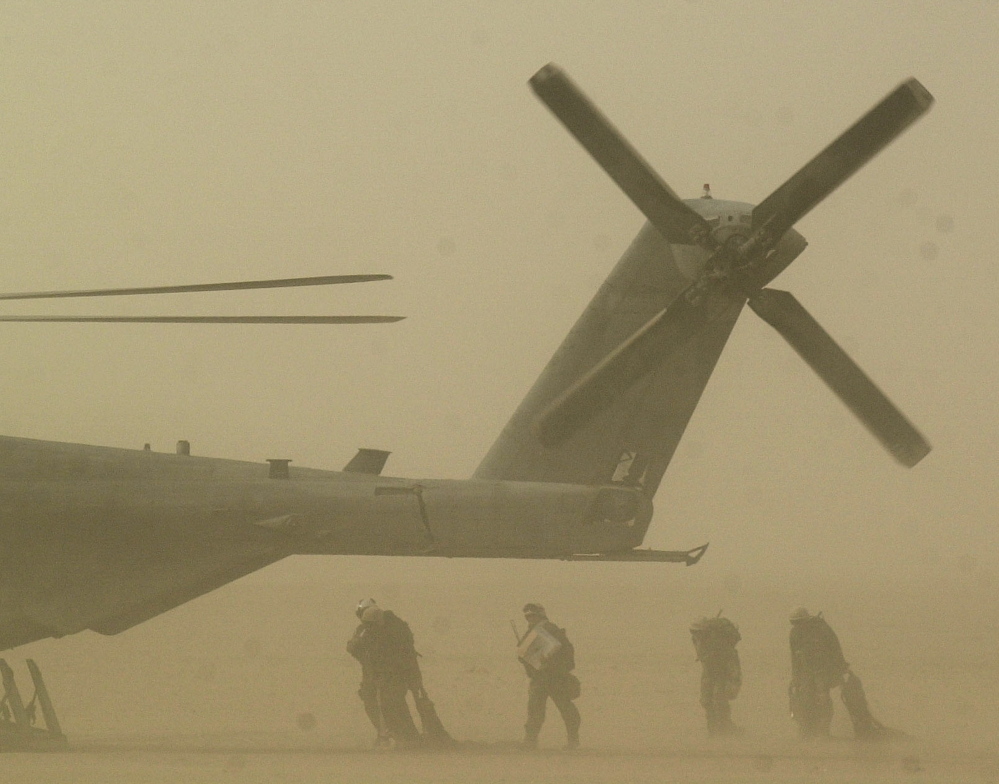WASHINGTON — Islamic State militants do not appear to have seized any chemical weapons as they have rolled across Iraq and Syria, the Pentagon said Wednesday, as reports of U.S. troops’ exposure to chemical weapons during Washington’s last conflict in Iraq raised questions about the extremist group’s access to similar deadly agents.
“We have no indications right now that they have possession of those kinds of munitions,” Rear Adm. John Kirby, the Pentagon spokesman, told reporters.
The United States destroyed 4,530 chemical munitions following the 2003 invasion of Iraq, which was motivated in part by the George W. Bush administration’s belief that then-Iraqi leader Saddam Hussein harbored a large-scale, secret weapons program. The chemical munitions that U.S. troops later found, however, were mostly decaying remnants of a much earlier weapons program.
While U.S. troops may have destroyed most of those weapons, U.S. officials acknowledge that at least some chemical materials may remain in Iraq, including some at a Hussein-era chemical weapons site that extremists seized in June.
The New York Times on Wednesday reported that at least 17 U.S. service members had been exposed to chemical weapons in Iraq after the 2003 invasion. In some cases, the Times said, military physicians failed to provide proper care to the troops, some of whom have reported lasting health problems.
Although military officials do not have a tally for all of the service members exposed to chemical weapons from 2003 to 2011, when President Barack Obama withdrew U.S. forces from Iraq, a defense official said about 20 had been exposed to chemical weapons from 2006 to 2008. Two troops were exposed to a nerve agent in 2004, the official said.
The renewed reports about Iraq’s lingering chemical stockpile may intensify anxiety in Congress about Obama’s Islamic State strategy, which now is centered upon airstrikes on militant positions in Iraq and parts of Syria.
Some lawmakers are pushing for more direct U.S. military involvement in the fight against the group.
“There are caches of this stuff clearly out there – it would be folly just to assume there aren’t,” an aide to the House Armed Services Committee said, referring to the possibility of the Islamic State seizing chemical materials in Iraq or Syria.
Copy the Story LinkSend questions/comments to the editors.



Success. Please wait for the page to reload. If the page does not reload within 5 seconds, please refresh the page.
Enter your email and password to access comments.
Hi, to comment on stories you must . This profile is in addition to your subscription and website login.
Already have a commenting profile? .
Invalid username/password.
Please check your email to confirm and complete your registration.
Only subscribers are eligible to post comments. Please subscribe or login first for digital access. Here’s why.
Use the form below to reset your password. When you've submitted your account email, we will send an email with a reset code.